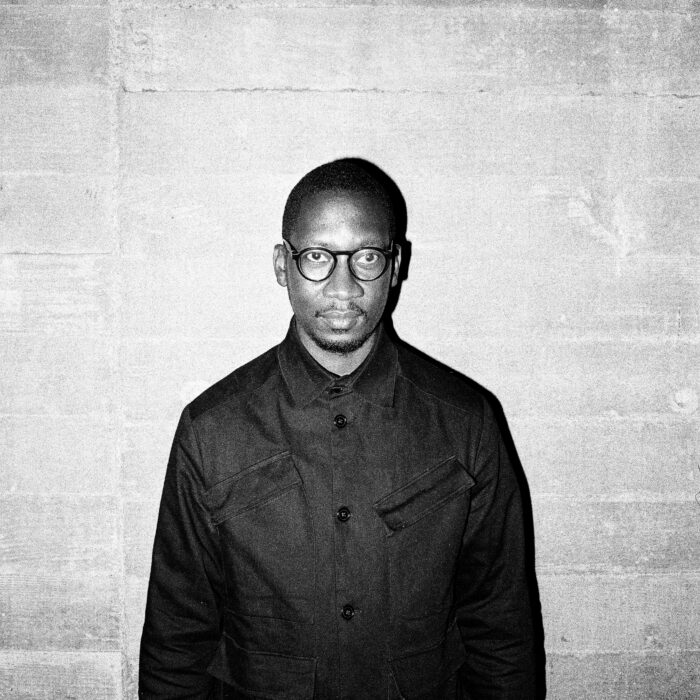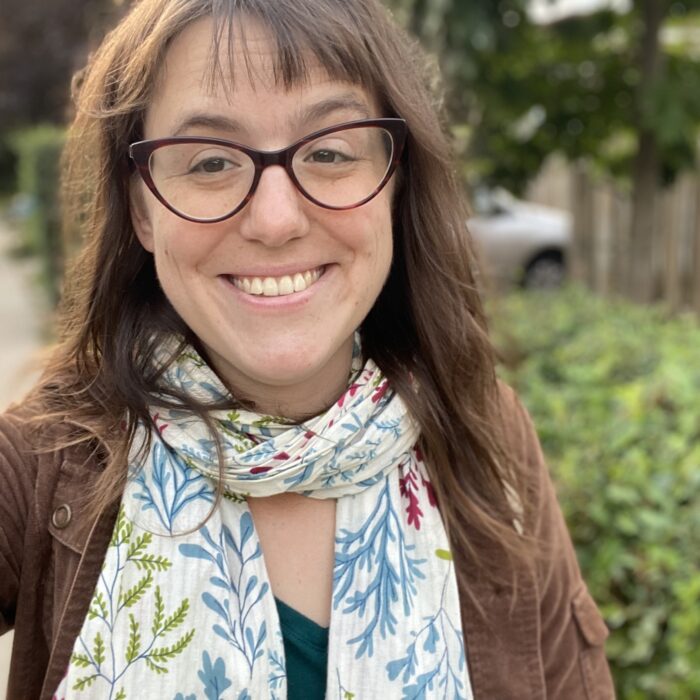You have no items in your cart. Want to get some nice things?
Go shopping
Henry Goldman of yranadult.com interviews Dr. Meg Jay, clinical psychologist and professor at the University of Virginia, who specializes in twentysomethings and recently published The Defining Decade: Why Your Twenties Matter – And How to Make the Most of Them Now.
HG: We at yr an adult like to refer to the twenties as the “New Adulthood”, and this is clearly a focus of your research and professional practice – I’m curious, how and why did you start to research it?
Dr. Meg Jay: I had so many twentysomething clients and twentysomething students – I taught at UC Berkeley, and had a private practice for many years – and I just realized I was seeing the same things over and over, and saying the same things over and over. I realized there was a real need, that twentysomethings were hungry for real information about this developmental moment.
There are a lot of generalizations about this generation: we’re more aimless, less structured, more connected, more entitled (in our minds). Do you generally agree that this generation has a different approach to facing adulthood?
That’s a good question. I think that’s been happening for a while. I mean, I’m not a 50s housewife – I’m a Gen-Xer. And my generation definitely got married later, we had our kids later, we traveled and explored before we settled down. So, it’s been happening. I think that’s not going to change, so I think this generation is continuing that trend. But they’re doing it in there own way. Technology’s changed a lot since Gen-Xers were in their twenties.
You seem to advocate a more aggressive type of growing up by the mid-twenties. Is there anything that you think can wait?
There are certainly some things that can wait, but where people get into trouble is when everything waits. And then there’s this new idea, that 30 is the new 20 and life is somehow going to be coming together in your 30s. But then people find that too much waited and there’s just not enough room for everything to fit. Life doesn’t add up the way that people wish that it would.
So I think it’s a personal preference about what waits for you. Is it work? Is it family? Is it exploration or travel? But everything can’t wait.
Based on your writing, you seem to really hate this saying, “30 is the new 20” – could you elaborate?
(Laughs) I do pick on that phrase, don’t I? I think it’s misleading because, what does it mean, “30 is the new 20”? 20 is when people used to graduate from college and start their lives and get going. So with that phrase, I think there’s this sense that “Ok, I don’t really have to face getting going in my life until I’m in my 30s.” And I have seen that lead to a lot of trouble. I’ve worked with too many clients in their 30s and even in their 40s, and they’re saying “Oh my gosh, what was I thinking? Now I can’t have the life that I want.”
I also think it leads to magical thinking where people think somehow at 30, everything is going to come together. But there’s a really big difference between starting your life at 30 and having a life at 30. And if you want a good life in your 30s, you can’t start it at 30.
I feel like a lot of people I know are optimistic that they won’t necessarily be able to start at 30, but they’ll be able to take what they’ve done in their 20s and either fully realize it or transition to something new.
Absolutely. And I think everyone is talking about underemployment right now, and the statistic that half of Americans twentysomething are either un- or under-employed. Even if you’re underemployed, to think about the fact that underemployment may still be sowing the seeds to having a good life in your 30s. I was definitely underemployed when I graduated college, but some of the things that I did had a fair amount of identity-capital, they helped my resume. And now, in my 40s, I’m not the least bit underemployed. And it came back to some of that underemployment I dealt with in my 20s. So yes, as long as you’re getting going, life will not have come to fruition in your 20s, but it will start to look good in your 30s.
What do you think about people delaying college one or two years, so you don’t show up at college so excited to be on your own that you forget to learn?
Absolutely. I work with a lot of college students, so I can definitely see the value in that for a lot of people. You know, it’s not unusual for people to take time off in the middle because they realize, “I don’t really know why I’m doing this. I’m not really benefitting.”
And I wouldn’t see that as delaying, as much as being more aggressive or more intentional about college. Saying “I’m going to think about what I’m going to do and then I’m going to do college in way where, when I graduate, I’m going to feel like it led to more for me.”
Do you think the milestones of aging – 21, 25, 30 – are actually healthy markers to track progress, or if sometimes people can get a little obsessed about them?
Both. (Laughs) I’ve certainly seen people get obsessed about them, but I do think, as you’re saying, time is a difficult thing to make sense of. There is something about new years and about birthdays and about that twenty-fifth birthday and that thirtieth birthday, that can lead to some helpful self-reflection about the fact that time is passing. Are we where we want to be? Will we be where we want to be in ten years? So, I’m a fan of developmental milestones, but you’re right, they’re nothing to obsess over.
This is more of a social science question, but do you have any sort of general assumptions as to why this generation of new adults are so different as a generation?
That’s a big question. It’s a general trend, obviously. It really started with birth control in the 1960s and 1970s. It didn’t really used to be an option to delay parenthood because people were getting pregnant. So, birth control had a big impact. Women’s rights, in terms of more women entering the workforce, so that really made a big shift, because women were no longer really thinking first about marriage and kids, nor did they have to. They could wait. There’s that.
There’s also the shift, very recently, in the economy, where it feels like there’s a lot of work to be done before people can even really think about settling down and having kids. First you’ve got to think about where am I going to find a job and even get going? I think it’s a trend that’s not going to go back in the other direction.
Though, a Pew Research study just came out showing that millennial women are interested in career, but they want family even more. And I do think there’s been a bit of a swing, between Gen X, my generation, who was the first to really push everything and you’re hearing some of the blowback from that, where people are saying, they’re paying the consequences. And you have to think about how you’re going to fit everything in.
So I think birth control and women entering the workforce, but saying they want to have it all really [precipitated the shift].
In your recent editorial in The New York Times, you suggest that moving in with your significant other, without a marriage in the works, or a clear commitment, is a bad idea, because, in your words, “people slide into cohabitating and then don’t slide out.” Do you think it’s an unequivocally bad idea for people to move in together without a plan to get married?
No. I’m not into black and whites as much as I’m into educating people. I think what we know about human development and about behavioral change is if you educate people about decision-making, they can be more self-reflective about they’re own behavior. The reason I include that in the The Defining Decade and wrote the op-ed, I think if twentysomethings are aware of sliding, and are aware of lock-in, they’re gonna be more likely to say, “Oh, am I doing that?” And that will hopefully lead them to make better decisions. Not necessarily to say, “Well, I’m never living with somebody”, but maybe not to slide into it. Maybe they’ll be a little more conscious about getting in and be a little more conscious about getting out.
Because I mostly work with twentysomethings, divorce is not really a big topic on the table for most of my clients, because they’re mostly not married yet, but I’ve seen too many say “I spent half of my twenties on someone who wouldn’t have been around more than a year had we not been living together.” And you hate to hear that.
It’s personally of interest to me, because I live with my girlfriend now and we haven’t ever really talked about what happens next, because we’re both in career modes. And when I read your op-ed, I definitely felt weird about how we kind of jumped into living together.
And people do. And I’m not saying people are bad for doing that. Just that that awareness will lead to more intentional decision-making about staying, or how long you stay. And that’s always for the best.
I agree with that. It was good to read, because I could see how, two years down the line, sliding into a marriage because that’s “what people do.” And that’s not how we should, hypothetically, do it.
Exactly. And I think this is something true for couples who live together before they get married. I mean, I lived with my husband before we got married. I think if you decide to get married, you need to do a bit of extra work around claiming it and making it clear that everybody is re-choosing this. So there’s not any leftover feeling of, “Am I doing this because I don’t want so start over?” And that’s something you can consciously do, which is good for your relationship.
And we live in San Francisco, so you could see the mindset where we’d say “Ughh, rent is so expensive. To move out, I’d have to move to Oakland.”
That’s funny. My husband and I lived in San Francisco, so yeah, exactly. It’s no small deal to move out. It’s a major logistical concern.
But I guess spending the rest of your lives together is a much bigger logistical concern.
(Laughs) Henry, you got that right.
What do you think this generation of new adults should be doing better – your top things that everyone should keep in mind?
Ok. [Firstly,] be intentional and educate yourself. Read my book, The Defining Decade, or read other things about how to make the most of your time.
[Secondly,] think about time. The human brain has trouble grappling with time. It’s not just twentysomethings. Fortysomethings don’t like to think about saving for retirement but they need to wrap their heads around it. Don’t be afraid to sketch out a timeline for yourself. You don’t have to stick to it, but at least get yourself think about what do you want for your future?
What do you see that makes you think well of this generation?
I think it’s such a positive developmental shift, actually, that marriage and career and babies are happening later. You could read my book as saying it’s a negative shift, but I think it’s a positive shift. What that means is you’ve got a crop of smart, interesting, dynamic people who can use that time to have lives that are far better than the ones their parents had. And that’s what The Defining Decade is about. I think twentysomethings are optimistic and smart and dynamic and courageous, so they should make the most of this sweet spot.
Republished from yranadult.com

About N/A N/A
Henry Goldman is a San Francisco-based ad producer, writer and gang member. He blogs daily for yr an adult, a website concerned about facing adulthood. He also tweets, tumblrs, and pretty much lives on the internet, like everyone else.



